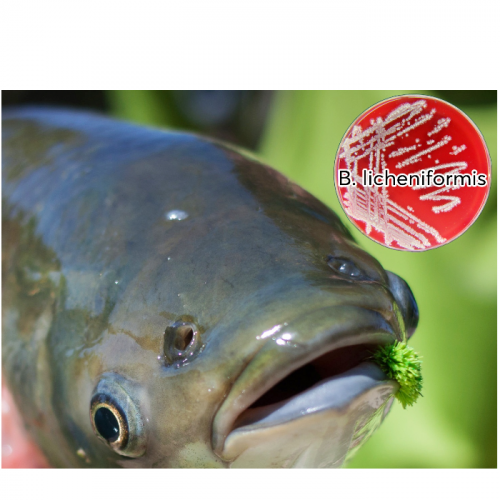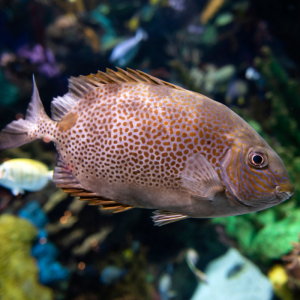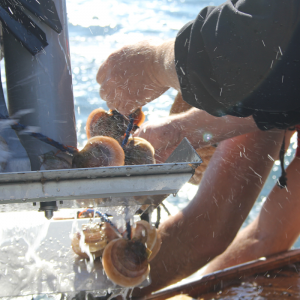
The Endogenous Bacteria Bacillus licheniformis Helps to Boost The Immunity on Grass Carp
| Wed, 02 Dec 2020 - 13:04
The intestinal antioxidants of grass carp increased significantly with the addition of Bacillus licheniformis from the outside.
Grass carp is a very important freshwater fish, accounting for more than 10% of total global aquaculture production. However, like many other cultured aquatic species, this fish also suffers from many diseases, creating many challenges for the fish culture.
In the last few decades, antibiotics have been used extensively to prevent the entry of pathogens. But due to overuse, the resistance of the bacteria is increasing and causing many negative impacts on food safety and the environment. Therefore, the urgent need now is to develop alternative antibiotic products, which is of great importance to both shrimp farmers and the public health.
Probiotics, non-pathogenic microorganisms, are seen as a promising alternative to antibiotics. Once inside the host, they can easily protect their health through improved digestion. In addition, probiotics also improve metabolic processes and inhibit cellular oxidation of many aquatic species. Thereby increasing the activity of enzymes in the body, shrimp and fish improve the growth, regulate protective immune responses.
Also read: Using a Probiotic Mixture is More Effective Alone
Gram-positive spore-forming bacteria from the genus Bacillus spp, create a wide range of beneficial effects on fish, along with good spore tolerance to harsh environments, produce many important enzymes, increase the use of oxygen for shrimp and fish and inhibit harmful bacteria in the intestinal tract of aquatic animals. As a result, Bacillus spp has become the most widely used beneficial microorganism strain in aquaculture at present. In it, B.licheniformis has been included in tilapia farming models and has brought many successes in yield and antioxidant capacity. And this study investigated the effects of B. licheniformis supplementation for growth, resistance to stress, intestinal activity and disease resistance of grass carp.
Among the many "bright candidates" for probiotics, Bacillus spp are a group that has a huge advantage due to their ability to form spores and produce antibacterial substances, important that they do not harm the host when supplemented. into food. In it, B. licheniformis is a species of endogenous bacteria right in the intestinal tract of grass carp. If this concentration of bacteria increases, the growth yield of grass carp also multiplies. This is also found in many other fish species. It is possible that they produce a variety of digestive enzymes, which, with improved digestibility, will inevitably grow fish rapidly.
Also read: Probiotic Capacity of Pseudovibrio Denitrificans Isolates From a Marine Sponge
As one of the largest immune organs, the gut is very important to the health of the host. However, the intestinal tract faces many challenges, such as oxidative stress and damage to intestinal tissue, which negatively affects the health of the host. Since probiotics will work mainly in the intestinal tract of fish after supplementation, the stability of the endogenous enzymes will help the probiotic work better. However, like grass carp, like other fish, the oxidation system is complicated with the participation of many enzymes. But after the experiment showed that the main antioxidants such as MnSOD and CAT in the intestine increased significantly with the addition of B. licheniformis from the outside.
Oxidative stress in fish can affect intestinal functioning. The internal physical barrier is composed of a sealed layer of cell epithelium that is closely related to intestinal permeability, is a key ingredient for homeostasis. And this barrier is more active and increases the length of the villi when the food is added to B. licheniformis for a long time. When the intestinal immune system is imbalanced, this will promote the damage of existing pathogens in the intestine, promoting inflammation that leads to the damage of many intestinal epithelial cells.
Also read: Probiotics in Aquaculture
Combining both B. licheniformi s and B. subtilis showed a higher immune-boosting effect. The exact mechanism of B. licheniformis bacteria needs to be studied further. However, it is certain that this strain can promote the growth and health of grass carp, a promising new strategy about to open up for grass carp farming.
Source: Tepbac.com






















